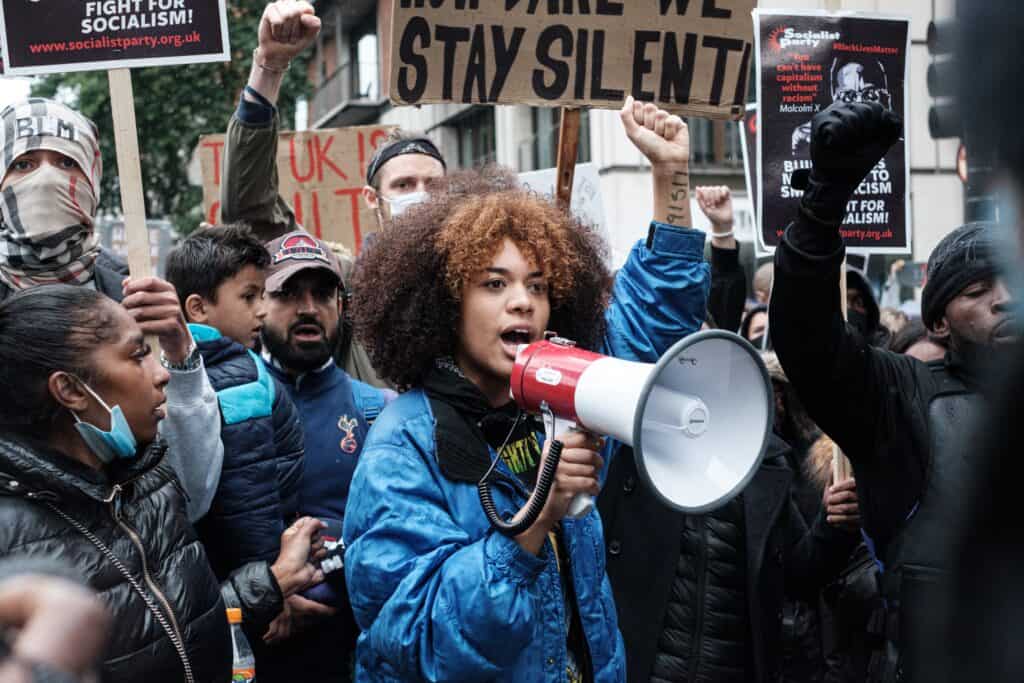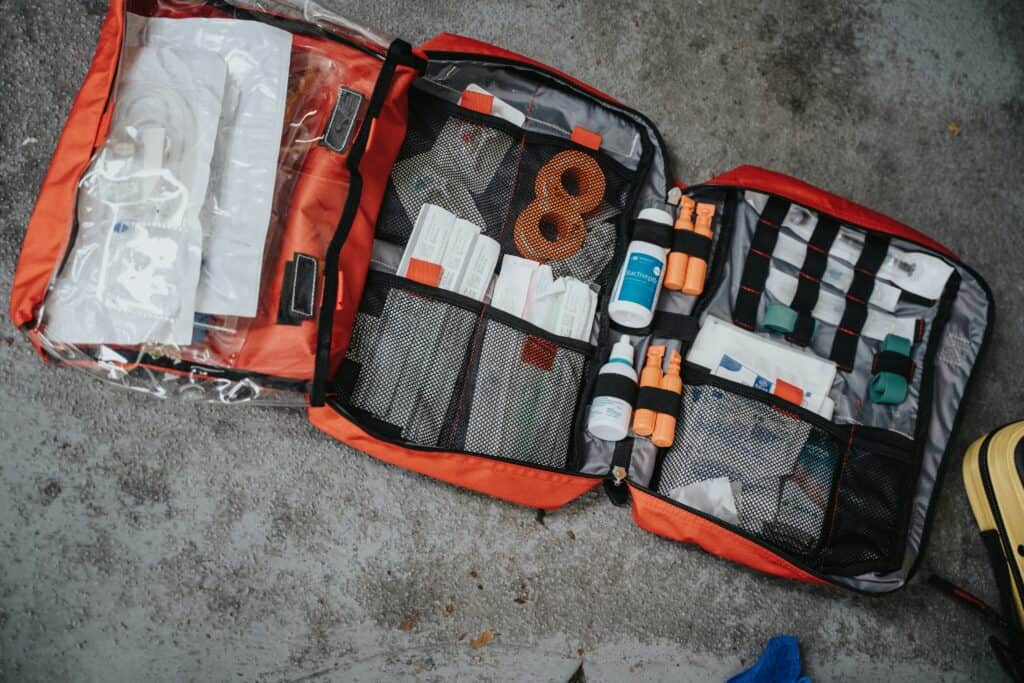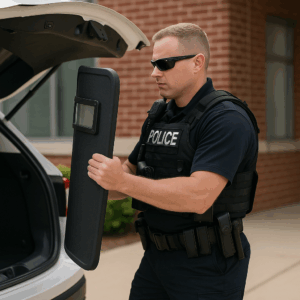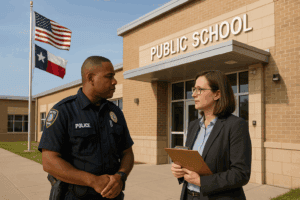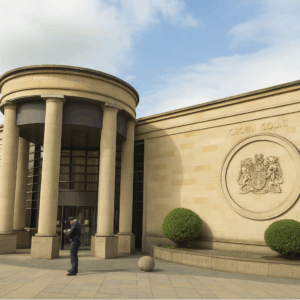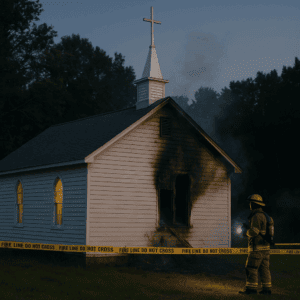During times of political unrest, it is important for travelers to prioritize their safety and well-being. This article offers practical advice to ensure that individuals can navigate these challenging situations while minimizing potential risks.
In recent years, political instability has arisen in various parts of the world, often resulting in protests, strikes, and even violent confrontations. For travelers who find themselves in the midst of such events, it is crucial to stay informed and be prepared. By following the guidelines discussed in this article, travelers can continue to explore with confidence, while also taking necessary precautions to stay safe during times of political unrest.
Understanding Political Unrest
Causes of Unrest
Political unrest can emerge for a variety of reasons. Some common factors include dissatisfaction with the government, economic hardship, social injustice, and opposition to policies or political figures. These issues often lead to a rise in protests, civil unrest, and demonstrations, ranging from peaceful gatherings to violent clashes.
Types of Demonstrations
Demonstrations can take on various forms, each with its own implications for travelers. They include:
- Peaceful protests: These are nonviolent gatherings where individuals express their grievances or demands through speeches, chanting, pickets, or symbolic gestures. While generally non-threatening, travelers should still exercise caution.
- Rallies: Similar to peaceful protests, rallies involve larger gatherings in support or opposition of specific issues. They can become heated and polarizing, so it is essential to maintain a safe distance if possible.
- Strikes: Labor strikes may result in disruptions to transportation, public services, and businesses. Travelers may need to adjust their plans or find alternative modes of transportation.
- Sit-ins: Sit-ins are nonviolent protests where participants occupy a space to express their demands or grievances. They can cause disruptions or inconvenience when taking place in public transit stations, businesses, or tourist attractions.
- Riots: Riots are violent and chaotic demonstrations, resulting in property damage, destruction, and potential injury. It is crucial for travelers to avoid these areas altogether.
History and Context
Understanding the historical and political context of the region is essential for travelers in politically unstable areas. Familiarizing oneself with the political situation and key issues can help to better assess potential risks and safely navigate the environment. This knowledge can also facilitate respectful and informed conversations with locals while maintaining a neutral standpoint.
Travel Planning and Preparation
Research Your Destination
Before embarking on your journey, it’s crucial to gather information about your destination, especially during political unrest. Check for any travel advisories issued by the U.S. State Department and other reliable sources. These advisories provide information on safety levels, possible threats, and recommended precautions. Based on this information, you can make informed decisions about your travel plans and itinerary.
Travel Insurance
Investing in a comprehensive travel insurance policy can provide financial protection and peace of mind during uncertain times. Several insurance providers, such as World Nomads, offer coverage for different scenarios, including trip cancellations, medical emergencies, and personal belongings. It’s advisable to opt for a travel insurance policy with a “cancel for any reason” clause, which allows you to cancel your trip without incurring significant losses.
Smart Traveler Enrollment Program
Registering with the Smart Traveler Enrollment Program (STEP) is a useful precautionary measure for U.S. citizens and nationals traveling abroad. The program enables travelers to receive updates and alerts from the U.S. State Department about the safety conditions in the country they’re visiting. Additionally, enrolling in STEP makes it easier for the nearest U.S. embassy or consulate to provide assistance in case of emergencies.
Staying Informed and Aware
Local News and Updates
It is important to keep up with local news when traveling during political unrest. Check reliable news sources like local newspapers, radio broadcasts, and television stations to stay informed about the political climate and any potential disruptions to activities.
Learning the local language, at least to a basic level, can also prove helpful. By understanding the language, you can follow news updates more effectively and communicate with locals for firsthand information. Local people are often aware of risks that may not be covered by news outlets. Approach locals politely and listen to their insights to make informed decisions.
Social Media Use
Social media is another good way to stay informed. Follow well-known media channels like official government accounts, local news channels, travel advisories, and organizations specializing in safety and security on platforms like Twitter and Facebook.
While using social media, be mindful of misinformation or exaggerated claims. Verify any information received with multiple sources before taking any action. Also, practice caution while engaging in discussions related to the political situation, as this may draw unwanted attention.
To briefly summarize, staying informed and aware during political unrest while traveling involves keeping up with local news, learning the local language, connecting with locals, and using social media responsibly.
Safety Measures During Unrest
Finding a Safe Place
During political unrest, it’s crucial to find a safe place to stay, preferably in a low-risk area. Secure accommodation away from the epicenter of the conflict, ideally with a reputable hotel or with trusted family or friends. Continuously monitor local news and stay informed about curfews, as well as safety guidelines and restrictions for the area.
Avoiding Dangerous Areas
To minimize the risk to yourself and your family, avoid areas with ongoing protests, known conflict zones, and neighborhoods with a history of violent protests or agitations. Familiarize yourself with local landmarks to help steer clear of dangerous areas. Respect roadblocks and avoid using your car to drive through active protest areas, or risk being targeted.
Interacting with Police and Protesters
If you encounter the police or protesters, stay neutral and respect the authority of law enforcement. In chaotic situations, avoid taking photos or videos without permission, as this can escalate tensions or lead to misunderstandings. Do not engage in verbal or physical altercations, and never participate in protests without the proper permits, even if you support the cause.
Blend in with Locals
Blending in with the local population can help minimize your exposure to threats during political unrest. Dress modestly and adopt appropriate manners to avoid drawing unnecessary attention to yourself. Carry enough cash to cover your expenses, as electronic transactions might be disrupted in times of unrest. Stay informed about local laws and customs, and be prepared to follow them at all times.
Strategies for Handling Uncertain Situations
Maintaining Flexibility
In the face of political unrest, maintaining flexibility is key. Travelers should be prepared to alter their plans in case of unexpected events, such as demonstrations or the closure of certain locations. This may include having alternate accommodations in mind and staying informed about potential disruptions to transportation, such as airport closures or changes in public transit schedules.
Travelers should also ensure they have the contact information for emergency services and their country’s embassy or consulate readily available. This will allow them to get assistance quickly in case of a crisis, such as a terrorist attack or other security threat.
Knowing Your Escape Routes
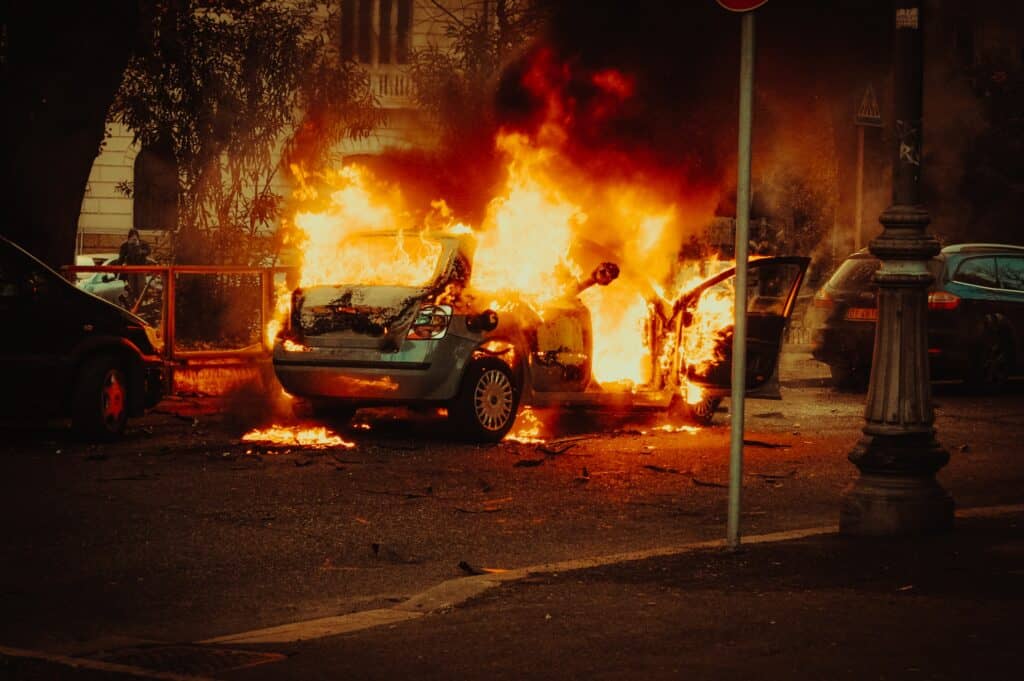
It is vital for travelers to know their escape routes when visiting an area experiencing political unrest. This includes not just familiarizing themselves with the layout of the city and major landmarks but also identifying multiple exits from their accommodations and common tourist areas.
When attending public events, travelers should note the locations of emergency exits and be prepared for the possibility of a sudden panic or stampede. In the event of a chase or other dangerous situation, knowing alternate routes and shortcuts could potentially save lives.
Staying Calm
Staying calm during a tumultuous political situation can be challenging. However, it is essential in order to avoid making impulsive decisions that may put the traveler at risk. Instead of panicking or getting swept up in the emotions of a marching crowd, travelers should remain focused on their safety objectives and stay vigilant for any potential threats.
In the context of political unrest, staying calm also means adhering to basic principles of democracy and respecting the rights of others to express their opinions, even if they differ from one’s own. By maintaining a neutral attitude and avoiding confrontation, travelers can mitigate the risk of being stranded or becoming a target themselves.
Protecting Yourself Legally
Understanding Local Laws
When traveling during political unrest, it is crucial for individuals to familiarize themselves with the local laws and customs. Researching and understanding these laws enable travelers to navigate safely and confidently, reducing the risk of unintentional infractions. It’s best to avoid participating in any political activities, as they could lead to being arrested or detained.
Contacting Your Embassy
In the event that a traveler faces legal issues or potential danger, contacting their respective embassy or consulate is an essential step. Embassies and consulates can provide assistance and information on securing legal counsel if detained or arrested. They also offer guidance on local resources and support networks for travelers during situations of political unrest.
Keep a list of important contact information for your embassy or consulate, including their address, phone number, and hours of operation. Having this information readily available can expedite the process of receiving assistance in urgent situations.
Frequently Asked Questions
What precautions should be taken during riots while traveling?
When traveling in areas with potential riots, it’s essential to stay informed about the local situation. Monitor local news, avoid large gatherings, and follow the advice of local authorities. Maintain a low profile, dress modestly, and avoid discussing politics publicly. Always keep identification documents and emergency contact information on hand.
How can one protect themselves during a protest?
If you find yourself in a protest, stay calm and composed. Avoid engaging in conflicts, keep a safe distance from violent encounters, and move away from the scene as quickly as possible. Remain aware of your surroundings and avoid wearing clothing or accessories associated with political groups.
What steps to take if caught in a demonstration?
In case you are caught in a demonstration, stay calm and remain vigilant. Do not engage in any political discussions or confrontations. Make an escape plan, and look for a safe exit while avoiding the center of the crowd. Keep your belongings close to you and try to blend in until you can leave the area safely.
How to create an emergency plan in case of civil unrest?
Before traveling to destinations with potential civil unrest, create an emergency plan that covers contact information for local emergency services, family, and your embassy. Make a list of safe locations, such as hotels or public buildings, and know the quickest routes to reach them. Share your itinerary and contact details with a trusted person back home.
Which areas should be avoided during political disturbances?
To minimize risk during political disturbances, avoid areas known for protests or gatherings, such as government buildings, embassies, and public squares. Stay away from large crowds and follow local guidelines and restrictions. Be cautious near military installations and avoid restricted zones.
What actions can help prevent getting involved in riots?
To prevent getting involved in riots, be aware of your surroundings and stay informed about the local political climate. Keep a low profile, avoid wearing clothing with political slogans or symbols, and refrain from engaging in political discussions. Follow the advice of local authorities and law enforcement, always prioritizing your personal safety.

